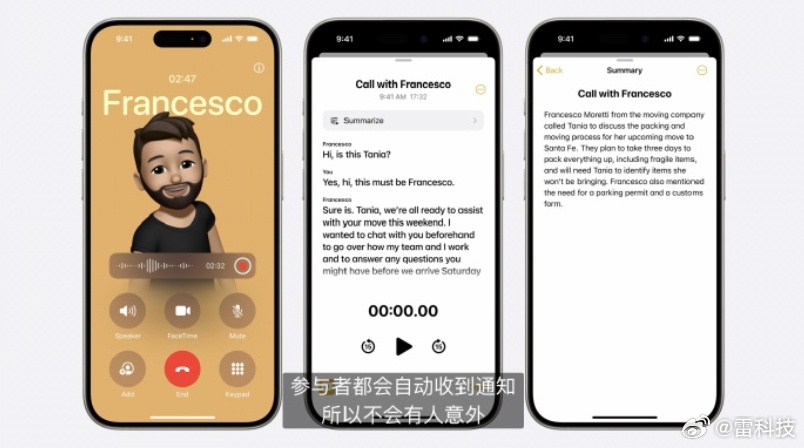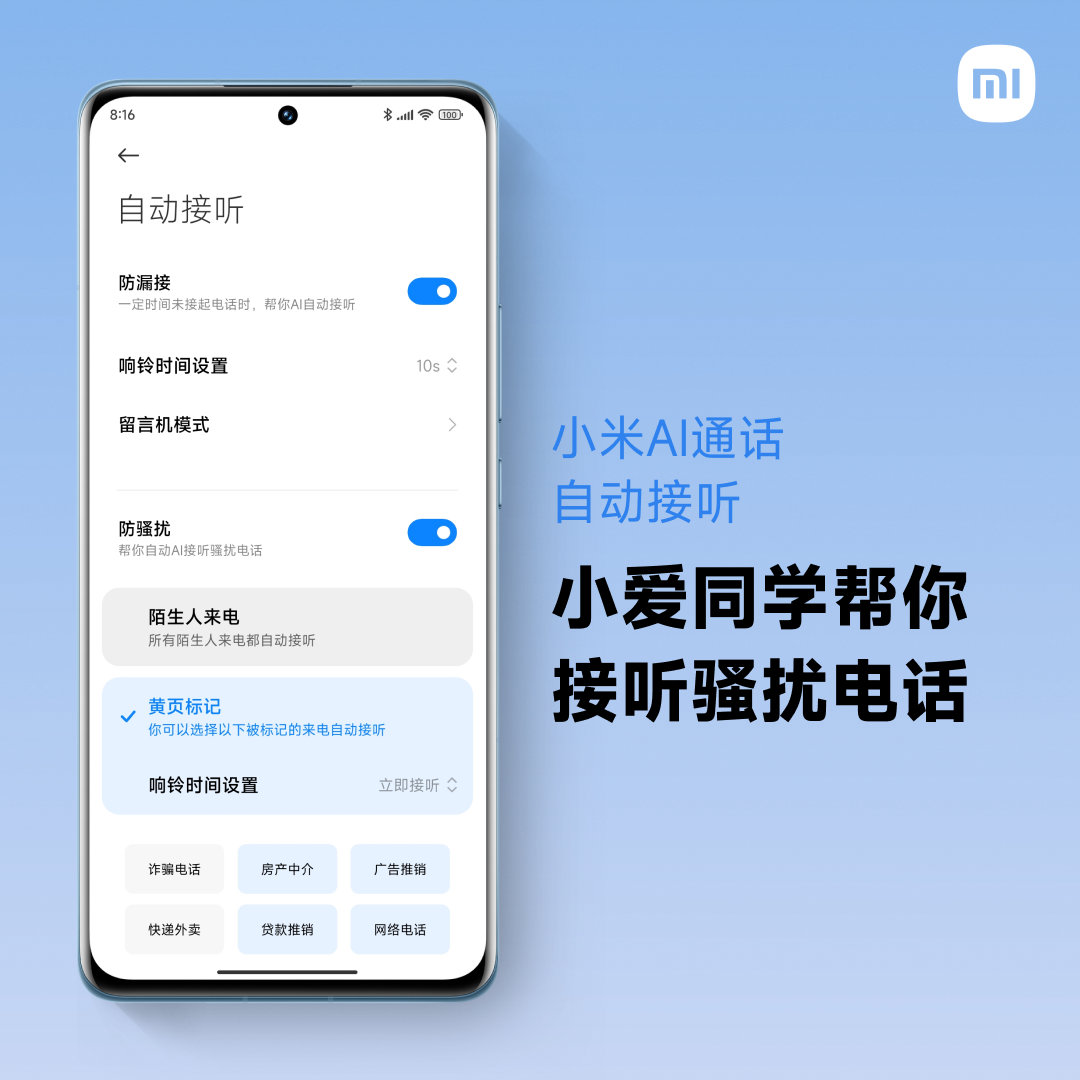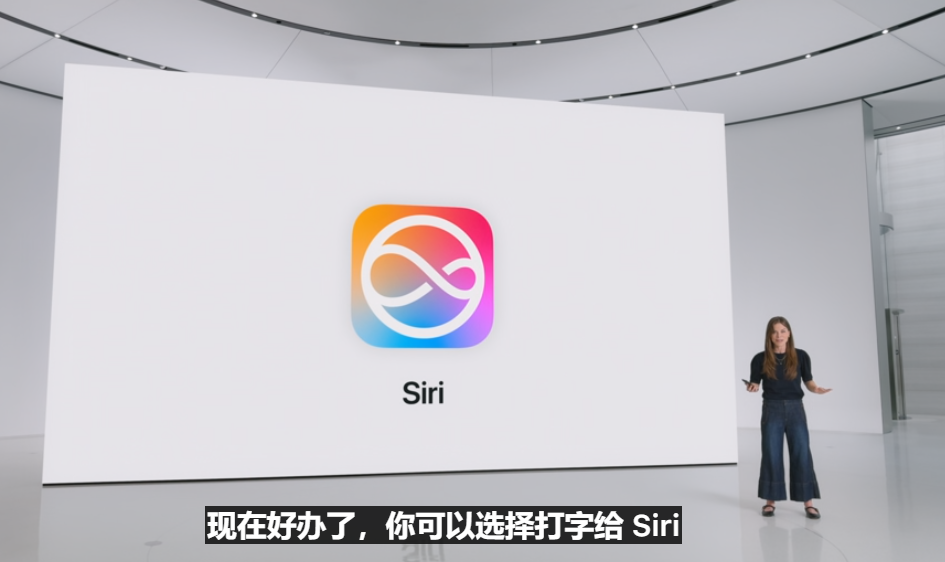The call recording feature of iOS 18 has become the landing point for Apple's AI
![]() 06/13 2024
06/13 2024
![]() 571
571
At WWDC24, the much-anticipated iOS 18 has finally arrived. However, after watching the entire keynote speech, I still feel disappointed. In my opinion, through the updates of iOS 18, Apple has become a poor imitator of Android. Features like custom icon arrangement, custom control center settings, and app locks, which are commonplace on Android custom systems, are now being heavily promoted by Apple during the WWDC keynote.
Of course, if we put aside the sense of disappointment and view iOS 18 from a pragmatic perspective, we can still discover its value for iPhone users, ultimately bringing a better experience.
Worth mentioning is that iOS 18 brings an "epic" update this time around—the addition of support for call recording. You see, for the past decade, many Apple users have expressed their desire for this feature, but Apple seems to have always turned a blind eye. Today in 2024, this feature has finally arrived on the iOS system, perhaps indicating that Apple is truly panicking.
iOS 18's call recording feature immediately fell into a vortex of public opinion upon its debut.
In 2017, someone on Zhihu asked a question: "What are the unbearable flaws of iOS?" In the top-ranked answer, the author @KuaiJiaoWoDaWangAh mentioned that iOS's lack of support for call recording caused them great trouble. For example, when communicating with a leader over the phone, if it were an Android phone, it could automatically record the conversation, and the specific content could be replayed at any time, but the iPhone couldn't.
Indeed, for me, who has used multiple brands of Android phones, call recording is almost a standard feature on domestic phones, even those from over a decade ago. Therefore, technically speaking, there is no difficulty in enabling iPhone support for call recording. However, Apple has been reluctant to equip the iPhone with this feature, simply put, due to considerations of security and privacy protection. After all, this is Apple's golden招牌, which cannot be easily touched.
With iOS 18, Apple has finally broken this taboo, which is originally a good thing for iPhone users. However, an additional restriction imposed by Apple has received countless complaints. Simply put, when using the call recording feature on iOS 18, the system will notify the other party. That is to say, the moment you press the call recording button, the other party will know that their conversation with you is being recorded.

(Source: Apple)
Many users oppose Apple's notification to the other party mainly because of the privacy-sensitive nature of call recording itself. Most people don't want the other party to know that they are recording. For example, someone recording a work conversation originally intended to document the work content and avoid forgetting, but once the other party knows, they may become suspicious. Some people use voice calls to communicate for rights protection and may use the call recording as evidence, naturally preferring to complete it in a covert state.
iOS 18's tight restrictions on call recording are obviously based on considerations for the interests of the person being recorded. From Apple's perspective, call recording contains voice information from both parties, and the right to privacy essentially belongs to these two individuals. If one party records unilaterally without the other party's knowledge, it would constitute a violation of the other party's privacy rights.
At the same time, regulatory restrictions are also an important reason for Apple's approach. Globally speaking, the legality and compliance of call recording features vary in different countries or regions. Taking Apple's home base, the United States, as an example, federal law allows unilateral call recording, and most states also support this function. However, in more than a dozen states such as California, Connecticut, and Florida, call recording requires the knowledge and consent of both parties, otherwise it is illegal. In Europe, different countries have different regulations on call recording functions, but the EU's General Data Protection Regulation (GDPR) stipulates that recording must be conducted with the knowledge and consent of participants, and participants have the right to delete.
In China's judicial practice, the regulatory authorities have not imposed substantive restrictions on call recording, but disseminating call recordings without the consent of the parties may constitute an illegal infringement. Currently, most domestic Android phones come with a built-in call recording function, and they will not notify the other party during actual use.
Overall, Apple introduced the call recording feature on iOS 18 and imposed restrictions on it mainly for two reasons: one is to consolidate its high-profile image in privacy protection, and the other is for compliance considerations. As a brand targeting the global market, Apple's one-size-fits-all strategy for call recording may be a wiser choice.
Voice call features are being revolutionized by AI
In addition to paying tribute to Android and making up for shortcomings, iOS 18's addition of support for call recording also considers AI scenario applications. It is evident that at this year's WWDC, AI was the absolute protagonist, and everyone's attention to Apple Intelligence to some extent overshadowed the mediocrity of iOS 18.
The call recording feature on iOS 18 also incorporates AI elements. In addition to basic recording, it also supports AI voice-to-text and summary extraction functions. Of course, compared to Android phones, this is still a very basic function. For major manufacturers, voice-to-text technology has long been mature, and Apple's own input method has had voice-to-text input functionality for a long time. And summary extraction has long been a basic skill for various large model products. To put it bluntly, compared to previous iPhone systems, iOS 18's call recording can be considered an "epic update," but it seems very basic compared to Android phones.
Taking Xiaomi phones as an example, several years ago, before the concept of AI phones was as popular as it is today, they built more advanced calling features based on Xiaoai Assistant. Specifically, the intelligent assistant can directly answer spam and scam calls on behalf of the user. During this process, the voice call is recorded in real-time and converted into text for recording. The intelligent assistant will also simulate the user's voice and talk to the other party.

(Source: Xiaomi)
At this year's OPPO Find X7 launch event, OPPO introduced an AI large model call summary function that can automatically organize key content from phone calls based on call recordings. It can not only extract call summaries but also identify key information to generate to-do items. Vivo introduced a phone secretary several years ago that can block and handle spam calls, as well as automatically record and convert voice to text. In the era of AI, Vivo phones have also added features like call summaries to their calling scenarios.
Samsung, which has long announced its all-in on AI, has brought real-time call translation functionality to the Galaxy S24 series. The other party's voice will be translated into text familiar to the user, and the user's voice will be converted into the other party's language. In this process, voice-to-text, text-to-voice, and language translation are the key technologies.
It can be seen that surrounding the most basic communication function of the phone, voice calls, Android manufacturers, especially domestic brands, have long created many practical features. Nowadays, with the help of generative AI technology, they have further enhanced the capabilities of the original functions and expanded usage scenarios. iOS 18 is merely an imitator and follower, introducing the most basic call recording function, and in this regard, Apple does not have much competitiveness.
Apple is panicking
In February this year, it was revealed that Apple had abandoned its nearly decade-long automotive business and shifted its focus to generative AI. This claim seems more like a face-saving move, as under the current trend, Apple would have to quickly embrace AI projects even if it didn't abandon its automotive ambitions to avoid falling too far behind.
In my opinion, the call recording feature brought by iOS 18 is more like a landing point that Apple has found for Apple Intelligence. After watching the keynote speech on the evening of WWDC24, my impression of Apple Intelligence is that it is simply陈列existing AI achievements on the market. Of course, Apple Intelligence demonstrates certain advantages, such as enabling the landing of edge-side models through its powerful self-developed chips, achieving many AI functions without relying on cloud servers. Moreover, Apple Intelligence is integrated into every corner of systems like iOS and macOS, endowing different hardware products in the Apple family with AI capabilities, forming an advantage in terms of experience.

(Source: Apple)
However, according to Apple's official statement, if local computing power is insufficient, it will call upon the computing resources of its private cloud. If that still doesn't work, it will seek ChatGPT-4o as an external resource. Currently, the first developer beta of iOS 18 does not yet support Apple Intelligence, and it initially only supports the United States and English.
Overall, Apple's AI grand plan is filled with a sense of haste. Apple neither wants to lag behind in the AI trend nor fully embrace AI like Android brands. Apple is still carefully maintaining its golden招牌in terms of security and privacy, trying to carve out a new track in the wave of AI popularization.
But to be honest, the development of AI technology cannot be separated from computing power and data. An AI product with continuously evolving capabilities must necessarily involve high-quality data feeding, which inevitably involves challenges to privacy and security principles. Apple officials have stated that the private cloud servers, chips, and programming languages behind Apple Intelligence are all from Apple itself and do not collect or store user data. In this way, Apple's cloud servers theoretically will not use user data to train AI models. Over time, it is doubtful whether Apple's AI capabilities can maintain sufficient competitiveness.
Apple has insisted on not opening the mobile phone call recording feature for more than a decade due to privacy concerns, but it has compromised under the AI wave. At the same time, Apple has imposed a tight restriction on the call recording feature by notifying the other party, offending both the firm privacy protection camp and the practical camp at once. This also shows Apple's dilemma and panic, wanting to fully embrace the AI trend while firmly upholding the banner of privacy and security.
Of course, for users, this is not a bad thing. With both radical and conservative factions in the AI field, we can observe the future evolution directions of both routes, gaining insight into their respective advantages and disadvantages, and ultimately selecting an AI product that suits us.
Source: Leitech







